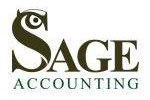Another defeat for HMRC in TV presenter IR35 row
Several high profile TV presenters have been under the spotlight in respect of whether IR35 applies to their working arrangements. The latest of these resulted in a loss for HMRC. What’s the full story?

Challenging HMRC’s assertions that IR35 applies to working arrangements has been something of a mixed bag for TV presenters. Lorraine Kelly and Kaye Adams both won their cases; but others, including Eamonn Holmes, have lost theirs. The latest case to be heard was that of Adrian Chiles (C), most recognisable as a sports presenter.
The First-tier Tribunal (FTT) disagreed with HMRC’s assertions that C was an employee (in all but name) of both the BBC and ITV. The Tribunal held that C was in business on his own account via his limited company, based on the number of clients he worked for. He had also embarked on a number of unsuccessful commercial ventures, indicating that he bore considerable financial risk. The FTT also downplayed the importance of a lack of substitution clause, i.e. that C did not have the right to provide a substitute if he were unable to undertake his duties.
The FTT took a “big picture” approach and decided that on the face of things the arrangements with both the BBC and ITV were part of C's business, and not part of an arrangement to which IR35 would apply. Of course, FTT decisions are not binding, and it is likely that HMRC will appeal. However, it does show that negative media coverage of these high-profile cases should not be taken at face value.
Related Topics
-
Directors’ fees - can you escape PAYE?
You’ve been asked to join the board of a company in a purely advisory role. For tax and NI efficiency you want your fees to be paid to your own company. Does this arrangement fall foul of HMRC’s off-payroll rules?
-
P46 (car) deadline
-
Filing deadline for self-assessment tax returns

 This website uses both its own and third-party cookies to analyze our services and navigation on our website in order to improve its contents (analytical purposes: measure visits and sources of web traffic). The legal basis is the consent of the user, except in the case of basic cookies, which are essential to navigate this website.
This website uses both its own and third-party cookies to analyze our services and navigation on our website in order to improve its contents (analytical purposes: measure visits and sources of web traffic). The legal basis is the consent of the user, except in the case of basic cookies, which are essential to navigate this website.